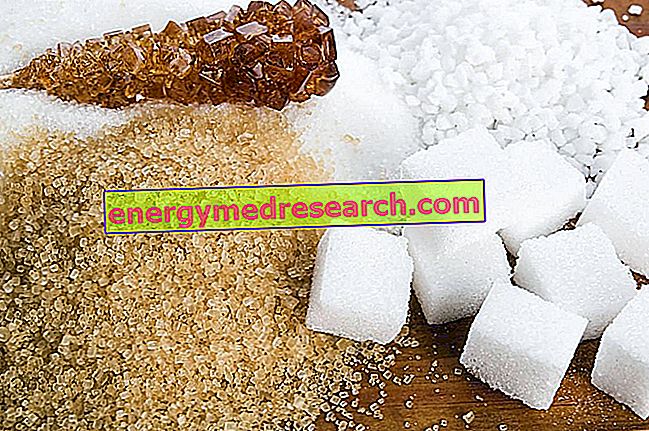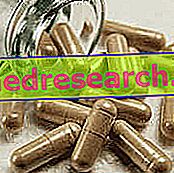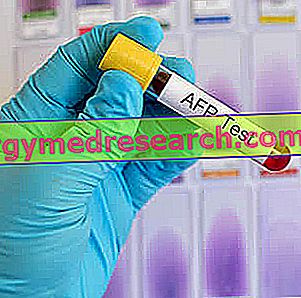What are?
The INNOVATIVE or novel foods are foods to which a different production process has been applied than the common one, or genetic modifications have been applied in order to obtain advantages such as:

Innovative foods are the result of the application of MODERN BIOTECHNOLOGIES or INNOVATIVE BIOTECHNOLOGIES.
Biotechnology
Biotechnology is a discipline that studies production techniques using LIVING SYSTEMS such as: MICRO-ORGANISMS, ANIMAL CELLS and VEGETABLE CELLS. In classic food biotechnology, traditional applications are being pursued (yeast for bread making, cheese rennet, etc.) but recently the new methods of enzymatic-molecular isolation (for example RENNINA fungal enzyme for cheese making to replace rennet) are gaining great importance., other bacterial enzymes for the maturation of meat or for the stabilization of beer or for the production of sweeteners or for the production of individual amino acids).
Biotechnology and genetic manipulation
The modification of the genetic heritage is one of the genetic engineering techniques useful for the production of some innovative foods; this method allows to "cut, sew, add and select" the gene sequences inside eukaryotic and prokaryotic cells, in order to synthesize proteins different from the original ones. It follows that, both in botany and in agriculture (therefore for the production of innovative foods), and in the medical field (for pharmacological production), biotechnologies are increasingly taking on a leading role.
Transgenic foods
Innovative-transgenic foods are products obtained through the genetic recombination of organisms that are ALSO belonging to different species and kingdoms; the reader might wonder what the applicative utility of a similar biotechnology is ... it is soon said! Taking an obvious example, using recombinant DNA to enhance a vegetable, it would be ... indeed, it is possible ... to increase its resistance in crops AVOIDING to use many chemicals such as well-known pesticides (eg: toxin combination [ harmless to the human] of the Bacillus thuringensis on the vegetables contrasts the proliferation of the larvae of harmful insect in the cultivations ... but it is not yet clear if its action extends also to the larvae of beneficial insects).
The most common innovative transgenic foods are: corn, potatoes, soy, tomatoes, canola, beans, etc.
Are they harmful?
Currently, the great difficulty in European expansion of innovative overseas foods is the belief that genetically modified organisms (GMOs) can harm both the surrounding environment (polluting other traditional crops) and the health of consumers ... I would say an entirely understandable attitude! However, it is also necessary to specify that the scarcity of information and the ineffective disclosure associated with the psychological terrorism of the conservative bodies have participated in the distortion of the fundamental concepts for the understanding of innovative foods. However, from my point of view, there is no doubt that the disclosure of transgenic crops and farms may endanger the biodiversity of pure animal and plant species.
Regulations
Innovative foods, therefore transgenic and already GMOs (if you prefer ...), are subject to regulation by the European Commission. The directive in question (GUL43 of 14 February 1997) defines the labeling forms for a CORRECT consumer / user information; the specific labeling of innovative VITALI foods (seeds, yoghurts, tubers, etc.) is considered OBLIGATORY, while those of innovative, non-viable foods (starch, dietary fiber, proteins, lecithins, etc.) are necessary ONLY if they are SUBSTANTIALLY different from the traditional ones.
Transgenic and / or GMOs .... was it necessary?
To hear the big producers and research institutes for biotechnologies, the production of plant and animal organisms with a genetic structure modified by man, to favor their productivity and / or yield (therefore the gain!), Is an absolutely process. UNAVOIDABLE.
It is certainly a now irreversible modification that introduces new foreign beings into the environment, and this could determine:
- Loss of biodiversity and permanent damage to wild flora and fauna
- Unforeseeable long-term effects
- Introduction of new viruses
- Antibiotic resistance
- Threat to organic and biological agriculture
- Irreversible contamination of the entire ecosystem.
Ask ... before they infect the planet, they could at least ask for our opinion! After 20 years of transgenic agriculture by ALL the world countries ... the organic or even just the organic have become a mere UTOPISTICA crop.



